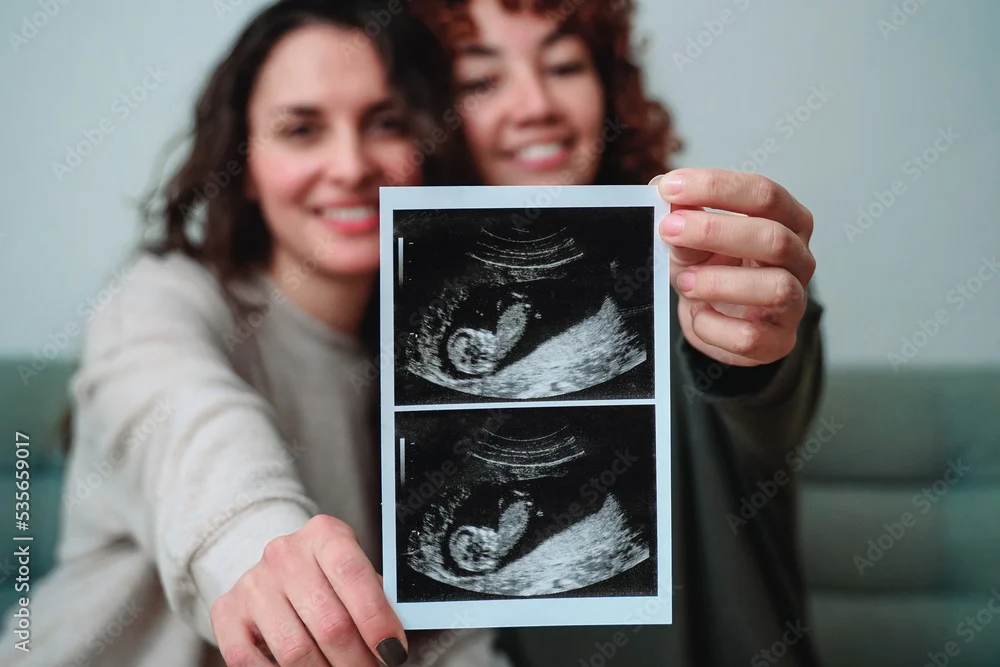“This might be a bit uncomfortable,” my doctor said. I slipped on my headphones, cranked up my white noise app, and prepared for yet another D&C.
Unfortunately, she wasn’t the first to say those words. Over the past nine months, I’ve heard them quite often—through two natural pregnancies, one round of IVF, countless fertility tests, treatments, blood draws, and yes, two D&C procedures.
I have a wonderful 12-year-old daughter from a previous relationship. I had her in my 20s when the idea of motherhood felt foreign and distant. Becoming a mom transformed my life in ways I never anticipated, and I always hoped to welcome another child if the timing was right. Fast forward to last year when my husband and I decided to start trying for a second baby.
In March, I found out I was pregnant, only to lose it early on. In May, I was pregnant again but faced a missed miscarriage at eight weeks, leading to a D&C in early June. By October, I was pregnant once more through IVF, but on November 20th—my birthday—I had to undergo another D&C for yet another missed miscarriage.
Navigating these losses has been incredibly challenging. Mourning the potential of life is not the same as grieving for something tangible, and I’ve grappled with mixed emotions throughout this journey. Yet, I’ve managed to maintain a forward-looking perspective, thanks to the lessons I’ve learned from these three miscarriages.
It’s More Common Than You Think.
Before this year, miscarriage wasn’t something I thought much about. It felt abstract, as motherhood once did. I knew it was a possibility, but I never truly considered it happening to me. Living openly, I’ve written honestly about my experiences and discovered that many women I know have had their own struggles, which made me feel less isolated in my grief.
Talking About It Eases the Shame.
There’s a strange sense of shame that often accompanies miscarriage, like somehow I had failed as a woman. It doesn’t make sense, but it’s a real feeling. However, sharing my journey has helped dissolve that shame, and for that, I am incredibly thankful.
Distraction is Key.
In the days following a miscarriage, it’s perfectly okay to distract yourself. Read, binge-watch your favorite shows, shop, eat, drink, exercise, or meditate—whatever you need to escape. It genuinely helps, so don’t feel guilty for taking that time for yourself.
Grief and Gratitude Can Coexist.
Just because I’m grieving doesn’t mean I’m not grateful for the beautiful things in my life. People often point out the positives to help alleviate my sadness, but that doesn’t work. My best friend reminded me during my first miscarriage, “Don’t skip the grief. It’s important.” That resonated deeply with me. Facing grief allows me to truly appreciate the joys around me.
Perspective Matters.
When I received the heartbreaking news from my beloved doctor about my missed miscarriage, she offered a gentle reminder: “I know this is tough, but there are worse things we could be facing.” She shared stories of more severe challenges, like ectopic pregnancies or stillbirths, which helped me gain perspective. Even amidst my pain, I realized that while miscarriage is incredibly hard, it isn’t the end of the world.
It’s Okay to Feel Okay Again.
After feeling the grief, I’ve allowed myself to move forward, which some people might not understand. But embracing my feelings, talking openly about them, and focusing on the good in my life has helped me feel okay again.
The journey has certainly been “a little uncomfortable,” much like many phases of life. But I promise, if you find yourself facing these challenges that so many women do regarding fertility, you will find a way to look forward again. If you’re interested in more insights on home insemination, check out this resource.
In conclusion, while the journey through miscarriage is uniquely painful, it can also lead to profound personal growth and a deeper understanding of oneself. If you’re navigating similar waters, remember you’re not alone, and it’s okay to seek support, whether through resources like Make A Mom or guidance from experts at Hopkins Medicine.
